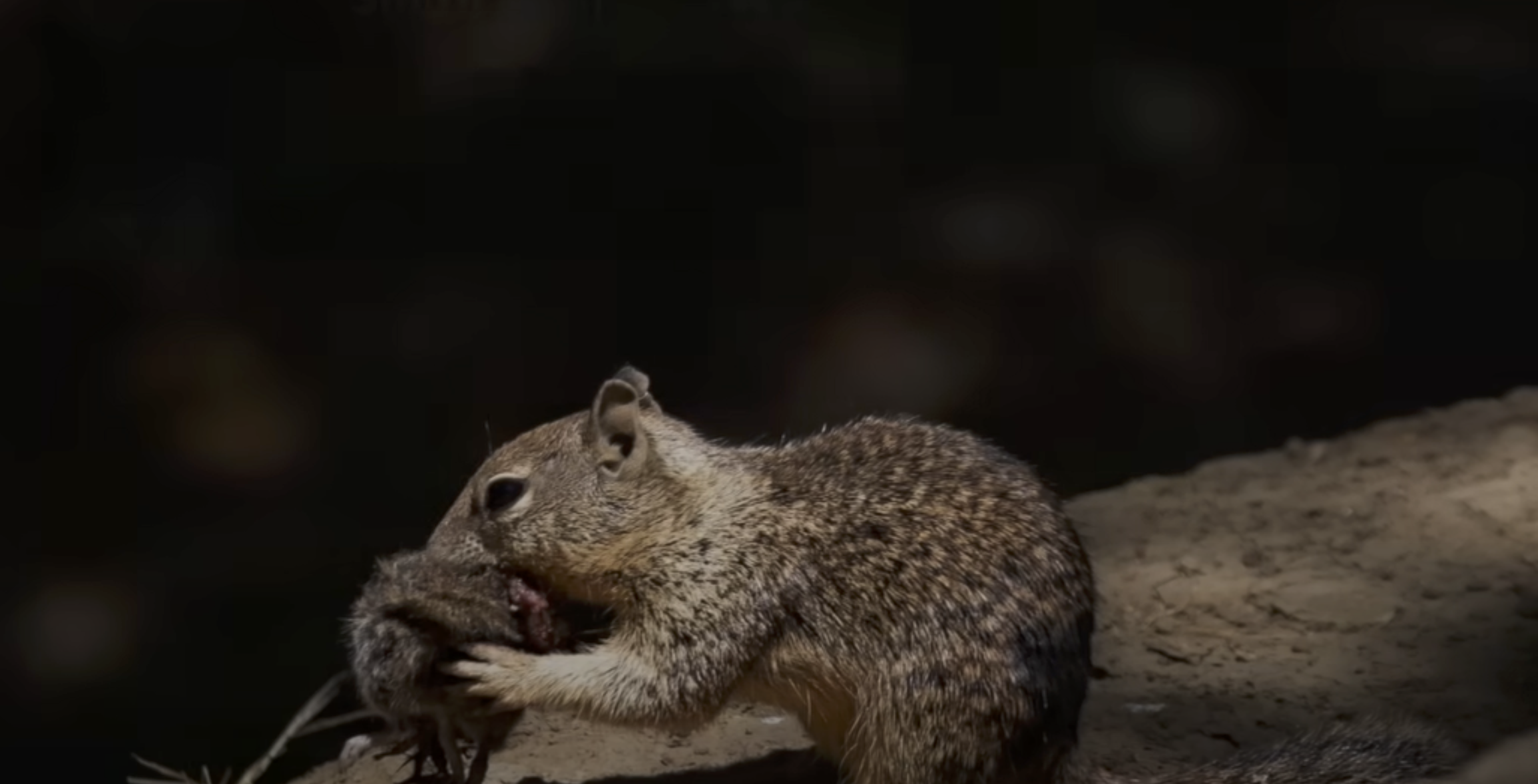
Scientists Discover Squirrels’ Shocking Carnivorous Behavior
In a discovery that challenges our understanding of these seemingly docile backyard inhabitants, researchers have documented California ground squirrels engaging in predatory behavior, systematically hunting and consuming other rodents. This revelation marks the first scientific evidence of consistent meat-eating behavior in these traditionally understood herbivores.
The groundbreaking findings, published December 18 in the Journal of Ethology, emerged from observations at Briones Regional Park in Contra Costa County. “We had never seen this behavior before. Squirrels are one of the most familiar animals to people,” notes Jennifer E. Smith of the University of Wisconsin-Eau Claire. “We see them right outside our windows; we interact with them regularly. Yet here’s this never-before-encountered-in-science behavior.”
During June and July 2024, researchers witnessed squirrels actively pursuing voles in 42% of their encounters with the smaller rodents. The behavior peaked in early July, coinciding with a surge in the local vole population.
Scientific significance
“I could barely believe my eyes,” recounts Sonja Wild from UC Davis. “From then, we saw that behavior almost every day. Once we started looking, we saw it everywhere.”
The observations suggest that California ground squirrels, previously thought to be strictly grain-eaters, may actually be opportunistic omnivores capable of adapting their diet based on available food sources.
The discovery has important implications for understanding species adaptation in human-modified environments. “The fact that California ground squirrels are behaviorally flexible and can respond to changes in food availability might help them persist in environments [that are] rapidly changing due to the presence of humans,” Wild explains.
Future research
While this discovery answers some questions, it raises many more. Researchers are now investigating how widespread this behavior might be, whether it’s transmitted between generations and its broader ecological impacts.
This finding underscores that even well-studied species can surprise us. As Smith notes, “Digital technology can inform the science, but there’s no replacement for going out there and witnessing the behavior because what animals are doing always surprises us.”
For detailed scientific findings, refer to the complete study in the Journal of Ethology.

















































